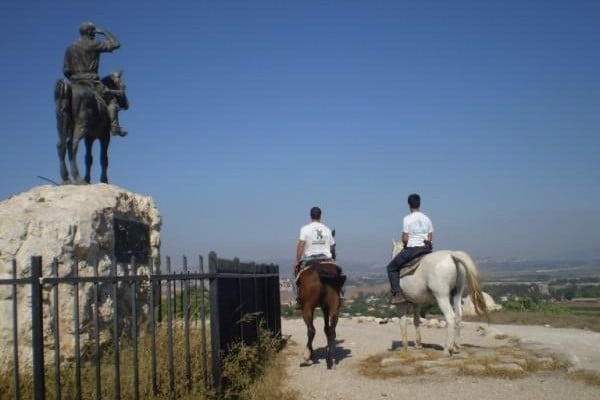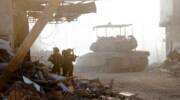
Yoel Zilberman, founder and CEO of the New Israeli Guardians, demonstrates the same idealistic Zionist spirit that characterized the early pioneers of the Jewish State.
By Atara Beck, United with Israel
Yoel Zilberman, 29, is one of 19 outstanding young social leaders chosen by President Shimon Peres to form a social entrepreneurship “think tank”, which brings together young people from all walks of life.
He became prominent several years ago as founder of Hashomer Hachadash (The New Israeli Guardians), a grassroots organization created in 2008 to protect farms, ranches and settlements in the Galilee and Negev from modern-day bandits hailing mostly from surrounding hostile communities.
According to Zilberman, there are approximately 100,000 illegal dwellings in the Galilee and Negev, mostly inhabited by Arabs and Bedouin.
The New Israeli Guardians is modeled on the Hashomer movement of the pre-State of Israel era. As the website explains, it is a “grassroots organization that is vital to helping farmers and ranchers in the Negev and the Galilee safeguard their land. Like the original Guardsmen who protected remote Jewish settlements 100 years ago, HaShomer HaChadash works to ensure a stronger Jewish presence in the Galilee and the Negev, inspire a sense of mutual responsibility among the Jewish people and create a stronger, more just society.”
Zilberman is a third-generation Israeli, born and raised on Moshav Zippori, which was established in 1949 in the Lower Galilee. His grandfather had moved to Israel from Romania after the Holocaust, having lost many family members; he and his wife were the first couple to settle on the moshav (cooperative agricultural settlement).
It was Zilberman’s personal experience that inspired the creation of The New Guardians, as his father was continually threatened by a neighboring Bedouin family that was determined “to do whatever they could to get my father off the land,” he said.
“They meant it. They began by cutting the fence, committing arson, burning hills, poisoning cattle…and then violence. They beat him up.”
Zilberman’s father was almost ready to give up the fight – until Yoel, at the time in an IDF officer-training program, took action. He and his army comrades began guarding the moshav and erected an Israeli flag on the land.
Other farmers nearby were similarly threatened. Not only were their livelihoods at stake, but their lives as well. They saw the success at the Zilberman farm and began asking for similar help, and thus the New Israeli Guardians was born.
“We have to restore the courage of the Jew in Israel. If we don’t take care of ourselves, no one will,” Zilberman states.
As the Hashomer Hachadash website explains, “what started out as a volunteer organization to protect the land has expanded to include programs that are revitalizing the Zionist spirit on which the state of Israel was founded and instilling a sense of pride, civic courage and ownership among Jewish young people.”
The New Israeli Guardians began with 35 young men and has grown to close to 2,000. Zilberman stresses that it is not affiliated with the left or the right, but acts in defense of the Jewish State.
“We are all Zionists. We all speak the Zionist language,” he asserts, adding that volunteers come from diverse political and religious backgrounds. We all have a responsibility to each other. It’s a question of values.”
Druze Volunteers Support New Israeli Guardians
Volunteers also hail from the Druze communities because, they tell him, “they want to live in the State of Israel.” Zilberman says.
The New Israeli Guardians was the recipient of the Menachem Begin Prize for outstanding contribution to the State of Israel and the Jewish people.
“I feel honored to have joined the ranks of Hashomer HaChadash, volunteering my one night of guard duty every month or so and helping out however else I can. Let the farmers and ranchers know that they are not alone. People do care,” says Mark Simon, a volunteer guardsman quoted on the website.
The New Israeli Guardians works in conjunction with army officials and local law enforcement.
Do You Love Israel? Make a Donation - Show Your Support!
Donate to vital charities that help protect Israeli citizens and inspire millions around the world to support Israel too!
Now more than ever, Israel needs your help to fight and win the war -- including on the battlefield of public opinion.
Antisemitism, anti-Israel bias and boycotts are out of control. Israel's enemies are inciting terror and violence against innocent Israelis and Jews around the world. Help us fight back!























